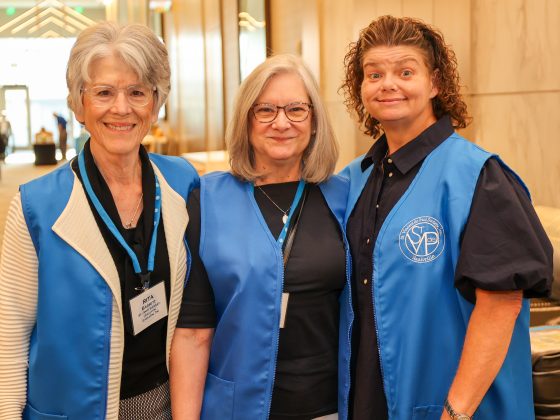“There but for the grace of God go I.” We tend to share this idiom most often when a peer, a friend, or a colleague suffers a misfortune – somebody whose shoes we imagine to be pretty close to our own size, familiar characters who have made the same mistakes we’ve made. Yet it captures both the empathy that is expected of Vincentian home visitors, and the unmerited nature of God’s grace.
Our Rule says that we refrain from judging the neighbor because we are always aware of our own weakness, and that we “seek to understand them as [we] would a brother or sister.” [Rule, Part I, 1.9] That isn’t always easy when the neighbor comes from a very different background than we do; when we don’t quite feel like we can relate; when their mistakes are different than ours.
It becomes easy, at times, to feel as if we truly know better because we haven’t allowed ourselves to make the mistakes we perceive in the neighbor’s story. We sometimes struggle to remind ourselves to, as Bl. Rosalie put it, “love those who are poor, don’t blame them too much. The world says, ‘It’s their fault… If we had suffered as they have… we would be far from their equal.” [Sullivan, 211]
The neighbors that call us often have no place else to turn for help; theirs are calls of desperation. Have they made unforced choices that led them to this? Oftentimes, yes. But just as paramedics don’t pause to figure out who caused the accident before working to treat the wounds, Vincentians don’t, as Bl. Frédéric once put it, “render the suffering classes responsible for their misery” nor ”fancy themselves exonerated from helping the poor man when they have proved his wrong-doing…” [O’Meara, 324]
“There but for the grace of God go I.”
God’s grace is “the free and undeserved help that God gives us.” [CCC, 1996] Undeserved. We, also, are undeserving, just like “The Undeserving Poor” in Bishop Untener’s essay. [SiH IV] Maybe this can help remind us that putting ourselves in the neighbor’s place means sharing their suffering, not imagining how we’d have made better choices.
Yet, it is also we who are called to be God’s hands, His eyes, His ears, and His loving heart; to love the neighbor as ourselves for the love of God; to serve for love alone. We go to the poor not to judge them but to serve them as the embodiment of Christ, exactly as he taught us. We go in simplicity, humility, gentleness, selflessness, and zeal in witness to our Vincentian charism.
And a charism, our church teaches us, is a very special grace from God. [CCC, 2003] So, while it may be the grace of God that saved us from the neighbors’ circumstances, it is at least equally the grace of God that sends us to sit with them, listen to them, pray with them, and love them – unconditionally.
Contemplate
Do I always put myself in the neighbor’s place first?
Recommended Reading
Serving in Hope, Module IV (especially “The Undeserving Poor”)




Love this! We will use this at our meeting tomorrow night.